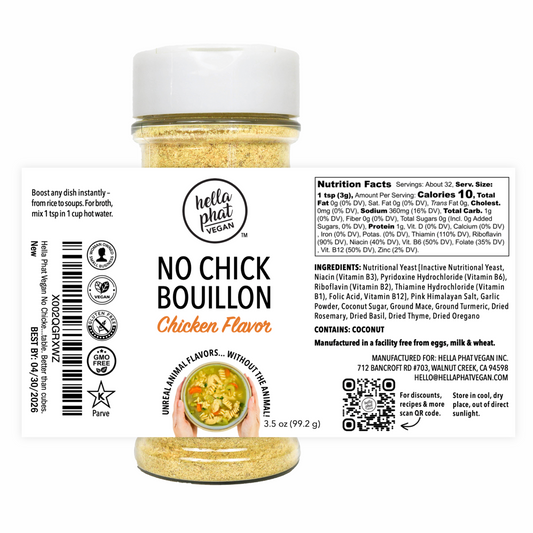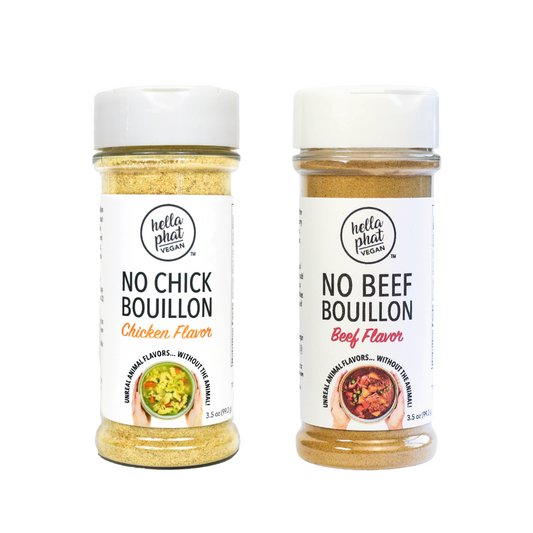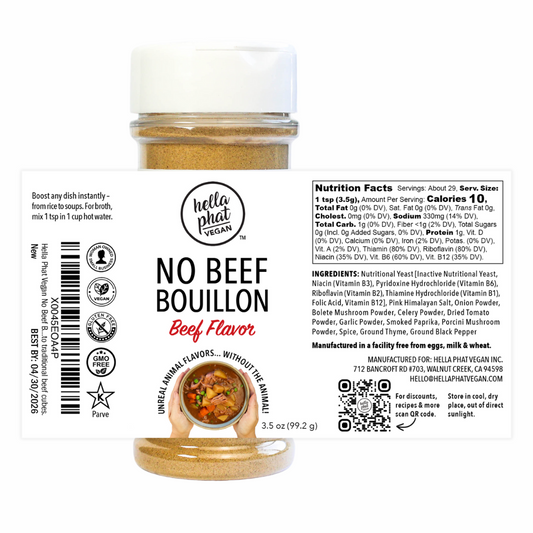When I became vegan I never anticipated I would be asked one question more times than I can count. If you're vegan I'm sure you can already guess which question I'm referring to...
"Where do you get your protein from?"
The whole idea of protein has grown in popularity especially with new diet trends such as the Keto, Atkins, Paleo and other variations of a low carb, high fat diet.
We've always been told that meat is high in protein so we tend to associate protein with animal meats. So when someone hears that you're going vegan or are vegan already they wonder how you'll survive without eating in their eyes the main source of protein.
The interesting part is most people don't even know how much protein you need or how much protein a typical person eats in a day.
Do you know how much protein you should be getting?
If you know the answer to this one kudos! Because I had no idea what the answer was.
Drum roll please... The answer is...
46-56 grams per day
This number will vary depending on your weight and you can calculate your specific number by multiplying 0.36 grams per pound. For example someone that weighs 150 lbs will require 54 grams of protein in a day. 1 out of every 10 calories we intake needs to come from protein.
Don't let the numbers scare you. Yes, it's nice to know but protein is in everything and yes plants have all the amino acids required to build a complete protein. In fact, soybeans itself is considered a "protein powerhouse" because it contains all the amino acids and it has the most plant based protein a human can consume!
Now that we know how much protein we need the question now becomes how much protein are we already getting in a day? These numbers may surprise you:
Vegans on average get 70% more protein than is needed in a day! That's around 75 grams only slightly below meat-eaters.
Meat-eaters on average are getting almost 80 grams a day.
Health Canada published in 2012 that 99-100% of adults met the protein requirement.
This is great news! And everyone was worried ;D
As a society we shouldn't be worried about protein but instead we should be focusing on nutrients that we are lacking in. Let's take a look at one of the nutrients most are not getting enough of fiber.
According to the American Heart Association the recommended daily amount of dietary fiber is 25 grams per day for a 2,000 calorie diet. This number will range depending on age, gender and calorie intake. Men under 50 years old should be eating 30 to 38 grams per day and women between 21 to 25 grams per day.
Let's take a look at how much fiber people are getting in a day:
The average adult is getting only 16 grams per day.
Less than 3% of Americans are getting the daily recommended amount.
On the other hand vegans are getting:
An average of 46 grams per day.
That's almost triple what the average adult gets.
Why are vegans getting more fiber than meat-eaters?
The answer is quite simple actually because fiber is only found in whole plant based foods. So it's no wonder that people who mostly eat animal foods will lack this nutrient and vegans who solely eat plant based foods will be getting plenty of fiber.
Why is fiber so important?
There are a lot of health benefits from eating fiber such as:
Improves digestive health
Lowers cholesterol levels
Reduces blood glucose levels
Maintaining a healthy weight
Key takeaway is that if you're eating a well balanced meal full of whole grains and whole plant foods you don't have to worry about getting enough protein or fiber. Every nutrient we need to survive is in plants (except B12, read more about vitamins on my blog post: Stay Energized With These Essential Vegan Supplements).
So the next time someone asks you where you get your protein the real question should be to them:
"Where do you get your fiber?"
If you don't think you're getting enough fiber below is a list of high fibrous foods:
Beans (all kinds), peas, chickpeas, black-eyed peas, artichoke, whole wheat flour, barley, bulgar, bran, raspberries, blackberries, prunes, lettuce, dark leafy greens, broccoli, okra, cauliflower, sweet potatoes, carrots, pumpkin, potatoes with the skin, corn, snap beans, asparagus, cabbage, whole wheat pasta, oats, popcorn, nuts, raisins, pears, strawberries, oranges, bananas, blueberries, mangoes, apples, just to name a few ;-)
One last thing. Below is a video that I came across during my research for this article. Dr. Michael Greger is very knowledgeable and gets all his data from research. This video pretty much sums up what I just covered.





